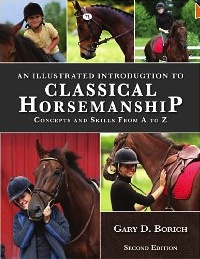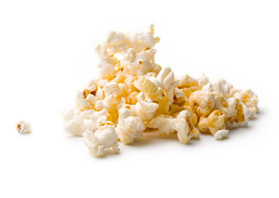The Good Earth: Asian Peach Pork Tenderloi
Year Released: 1937
Directed by: Sidney Franklin
Starring: Luise Rainer, Paul Muni
(Not Rated, 138 min.)
Academy Awards (1937)
Actress in a Leading Role: Luise Rainer

"I shall never sell the land! Bit by bit, I will dig up the fields and feed the earth itself to the children." Wang Lung
Released three-quarters of a century ago, this epic film still resonates. O-Lan, the (Oscar-winning) female lead, is fearless and resolute in ways today’s feminists only dare dream of. And her goodness shines forth like rays of sunshine warming her beloved earth.
In fact, The Good Earth should be required viewing for this effete generation who regard making due with their original iPad a financial hardship; whose idea of feminism is sharing lattes after an organized protest parade, or whose provincialism notes only the social injustice that emanates from America’s shores.
Early scenes in the film establish the hardscrabble existence of peasant farmer Wang Lung (Paul Muni).
“Today is the day,” he repeats, readying himself for his trip to the village’s Great House, where he will pick up the bride his father (Charlie Grapewin) has chosen for him. Such is his ebullience that Wang even forgoes the usual frugality for that day, actually putting tea in his father’s hot water and giving himself a full bath, despite admonitions against such lavishness.
As he goes through the village, Wang must negotiate his way around the nest of hawkers and vendors who press their wares upon him. He skirts his way past and through them almost as he does the equally dense layers of cultural traditions and malpractices that surround him. His bride-to-be, O-Lan (Luise Rainer), is a product of a less savory one. She is an ill-used kitchen slave, sold off by her parents to this wealthy house during a time of famine.
And so much revolves around the peaches, those Wang Lung had resisted on his trip there, but now buys during his return through the streets with O-Lan walking the few requisite steps behind him. He hands some to her, saying they are for her, to eat now, for her own pleasure. As she hesitantly reaches for them, O’Lan’s eyes tell us she has never had such an offer. Gloating somewhat in his munificence, Wang Lung casually tosses off a peach pit, but O-Lan hurries to retrieve it, telling him that a tree will grow from this.
That night she plants the peach. The closest Wang ever gets to whispering sweet little nothings in her ear are his assurances that the earth is good here and that the peach will grow into a fine tree on this land. She winces as he raises his hand to indicate his field and he asks her if she has been treated cruelly at the Great House. When she nods, he tells her that she need never fear that here. Not quite King Arthur warbling about his little place on a hill –
"The rain may never fall till after sundown.
By eight, the morning fog must disappear.
In short, there's simply not
A more congenial spot
For happily-ever-aftering than here
In Camelot."
…but pretty decent, nonetheless.
And the earth is good to them, but she is a demanding mistress, too. O-Lan labors with her husband in the fields, cutting, stacking, threshing, and grinding the wheat by hand, back-breaking labor, even with the aid of the patient soft-eyed water buffalo walking in endless circles to grind the wheat into flour.
The land and their labors unite them. O-Lan staves off her first labor pangs to harvest the wheat before a storm threatens ruin, bringing in the last bundles just as her son and the storm arrive almost simultaneously. And it should be mentioned that “ruin” here does not refer merely to financial ruin, but to the very imminent threat of their starving during the winter without their harvest.
But even the purchase of more fields -- five in all -- is not enough to sustain the now young family of five when real disaster strikes. Drought and famine, the same twin disasters that ushered in O-Lan’s life as a kitchen slave, return. If Wang Lung and his family seem to be eating while others do not, it is because he digs in the earth for roots. The pots boiling on the stove contain nothing more than bubbling cauldrons of mud. Even if it cannot nourish, the earth will fill their empty stomachs.
But with a baby on the way, Wang lung must do something. He must sell his land for a pittance. He waits to sign the papers as he hears the cry of another mouth to feed, but O-Lan steps from behind her labor screen to stop him from signing the papers. “The child is dead,” she says simply. They will not sell the land but will head south to survive in the cities until the drought passes.
It is in the city that Olan finds a bag of jewels, a fortune, literally, that will change their lives forever. The land, once the focus of Wang Lung’s life, is no longer the good earth, but so many ledgers of real estate that yield him not bundles of golden wheat, but bundles of gold coin instead.
Is he better off a rich man detached from the land? Are we, comfortably stationed behind a welter of electronic conveniences, any happier than our forefathers who toiled under the sun?
—Kathy Borich
Film-Loving Foodie
“Olan, you are the earth.” So says Wang Lung, mourning her death, as he stands by the peach tree his wife had planted on their wedding day.
This shy, plain creature, he finally realizes -- in the film if not the novel --is the “one.” She is like his beloved land, the good earth that has nourished and centered him through their mutual bonds. Through drought and famine, storms of wind, water, and locusts, he has stood by her and she by him.
That peach is the enduring symbol of O-Lan and her ties to the earth, the seed she planted on their wedding day, still there to remind him of her.
O-Lan, the consummate cook, would have surely found a tasty way to enjoy those peaches. Now that it’s grilling season, how about a delicious recipe for Asian Peach Pork Tenderloin, enhanced with garlic olive oil and fresh ginger? I can smell it smoking over the hot coals already.
Yum!
Asian Peach Pork Tenderloin
Ingredients
- ½ cup Garlic Virgin Olive Oil
- ⅓ cup Teriyaki Sauce
- ¼ cup Red Wine Vinegar
- ½ cup Sugar-free Peach Preserves
- 3 Tbsp Lemon Juice
- 2 Tbsp Liquid Smoke
- 1 Tbsp Sea Salt
- ½ cup Vidalia Onions, fine dice
- 1½ tsp Fresh Ground Black Pepper
- 1 Tbsp Ginger Root
- 2¾-1 lb Pork Tenderloins
Balsamic Reduction:
- 3 cups Balsamic Vinegar
- ¼ cup Brown Sugar
Directions
Combine first 10 ingredients. Place in a resealable bag. Add tenderloins and turn to coat and seal. Chill for 4 hours, turning occasionally. Remove and cook on grill. Grill, covered, 6 inches from medium coals 12-14 minutes or until done, turning once. Slice into 1/4 inch thick pieces. Serve over steamed rice, drizzled with reduced balsamic vinegar.
Balsamic Reduction: Place balsamic vinegar and brown sugar in a small skillet over medium high heat. Simmer, watching carefully and lowering heat, if necessary, until reduction is little thinner than desired, 2-4 minutes. It continues reducing when removed from heat. Drizzle over tenderloins and rice.
Recipe Source: Better Recipes. com



 Classic & Crime
Classic & Crime